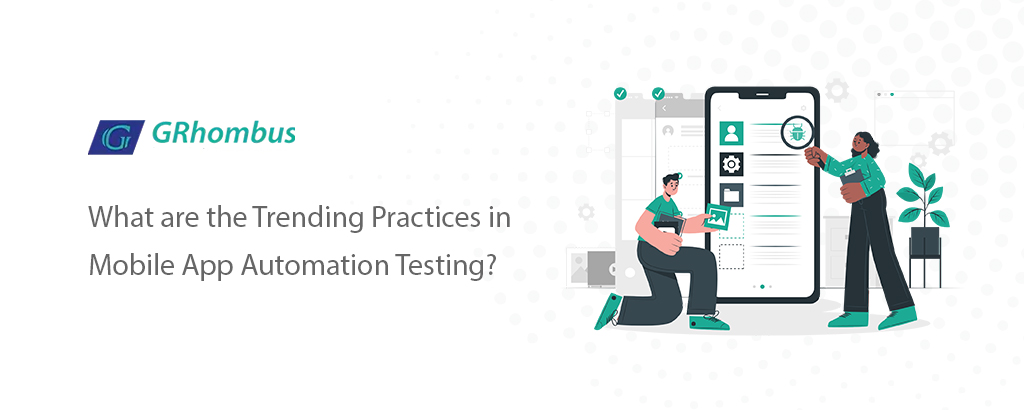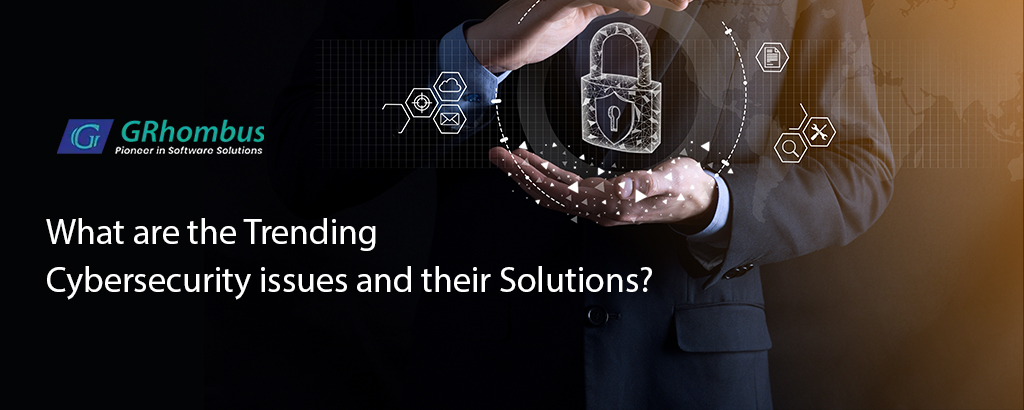Mobile phones have now enlarged in function to become an all-encompassing devices that is touching almost every aspect of our everyday life. The primary driver for this progress has been the ability to develop various mobile applications to enhance their value and function. Given their critical function, it is necessary to test mobile applications properly before deployment. GRhombus, a leading software development company in UAE bring to light some trending practices in mobile app automation testing in the below blog. They are:
1) Test automation frameworks such as Appium, Espresso, and XCUITest.
2) Continuous integration and continuous delivery (CI/CD) to automate the build and deployment process.
3) Cloud-based testing platforms, such as Sauce Labs and BrowserStack, to test apps on a wide range of devices and different versions of operating systems.
4) Test automation using artificial intelligence and machine learning.
5) Shift-left testing, which involves starting testing earlier in the development process to find and fix issues sooner.
6) Use of open-source tools like Selenium for mobile web testing and Calabash for mobile native testing.
Test automation frameworks such as Appium, Espresso, and XCUITest are used to automate the testing of mobile and desktop applications. They provide a set of libraries and tools that can be used to write automated test scripts that can be executed against the application under test.
XCUITest is a test automation framework for iOS applications. It provides a simple and easy-to-use API for writing automated test scripts for iOS apps, and it is integrated with Xcode. It also supports other languages like Swift and Objective-C.
Continuous integration (CI) and continuous delivery (CD) are software development practices that involve continuously integrating code changes into a central repository, and then continuously delivering those changes to various environments.
CI/CD is a key practice in modern software development that enables development teams to deliver new features and bug fixes to users faster. It helps reduce any issues in the code base and code can be released to multiple environments simultaneously.
Cloud-based testing platforms, such as Sauce Labs and BrowserStack, provide a way for developers to test their web applications and websites across a wide range of browsers, operating systems, and devices. These platforms allow developers to run automated tests and manual tests in a virtual environment, eliminating the need for a physical lab of devices and browsers. This allows for more efficient and cost-effective testing, as well as the ability to test on a wider range of configurations.
In all the above cases, proper tools and processes must be in place to track and report the test results and bring it under the continual improvement loop. Some of the best test case management tools in our experience as one of the best penetration testing companies in UK are:
- TestRail: A web-based test case management tool that allows users to manage, track, and report on test results.
- Zephyr: A test case management tool that integrates with Jira and allows users to track test cases and their results.
- qTest: A cloud-based test case management tool that allows users to manage, track, and report on test results in real time.
- Test Link: An open-source test case management tool that allows users to manage, track, and report on test results.
- Practi Test: A web-based test case management tool that allows users to manage, track, and report on test results and also has integration with JIRA and other DevOps tools.
About GRhombus
GRhombustech, among the leading software development companies in UK, offers innovative and customizable cyber security and cloud testing solutions for an organization of any scale and size.
Driven by passion, purpose, experience, and service-mindedness, we offer excellence at any and every touchpoint. Our team of experts serves clients across Europe, UK, USA, Middle East, and achieving client delight at every touchpoint is our mission.
For more details, contact us.

